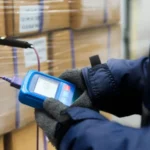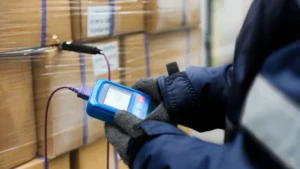Planning an event is not a small task. It involves many moving parts, and one crucial aspect is event logistics. This term refers to the detailed planning and execution needed to ensure everything runs smoothly during an event. From conferences to trade shows, effective logistics management makes all the difference. Let’s explore what event logistics entails and why it is vital for any successful gathering.
Understanding Event Logistics
Event logistic management focuses on the coordination of various elements necessary for an event. This refers to the process being used while planning and executing the transport and storage of materials and goods for an event like trade shows, concerts, sports, or conventions. It also includes the management of the security, staff, catering, and other supporting staff and services. The goal is to ensure that everything arrives on time and in the right place.
Elements and Components of Event Logistics
Creating an event logistics plan is essential. This plan outlines every detail needed for the event’s success.
Here are the key components:
- Venue
- Transportation
- Catering
- Scheduling
- Staffing
- Equipment
- Supply
- Communication
- Technology
Venue Selection: Choosing the right venue sets the stage for your event. Consider factors like capacity, accessibility, and facilities available.
Transportation: Determine how materials, equipment, and attendees will be transported. This could involve any modes of freight dispatch like vehicles, air freight, or other modes of transport.
Catering: When you are organizing an event, be it small or big, you need to estimate the number of people attending it. It helps you to select a sizable venue, beverages, and meals that you need to outsource from different vendors.
Scheduling: Develop a timeline that includes key dates for deliveries, set-up, and event execution. Keeping a detailed schedule helps prevent last-minute surprises.
Staffing: Ensure you have enough personnel to manage the logistics. This includes security, set-up crews, and technical support.
Equipment: Identify all the necessary equipment for the event, such as audiovisual tools, staging, and seating arrangements.
Supplies: List all supplies needed, from promotional materials to catering. Knowing what is required ahead of time avoids last-minute scrambles.
Communication: Establish clear communication channels among all parties involved. This keeps everyone on the same page.
Technology: If it’s a conference, some professional gathering, or some musical program, the venue should be technically equipped. The indoor halls and the outdoor lawns should have projectors, video equipment, speakers, and other required devices.
Benefits of Event Logistics Services
Many companies specialize in providing event logistics services. These services can include transportation, warehousing, and set-up. Here are a few benefits of the same –
- Expertise: Logistics companies have the experience and knowledge to handle the complexities of event planning.
- Timesaving: Outsourcing logistics tasks allows event planners to focus on other critical areas.
- Reliability: Professional logistics services ensure timely deliveries and efficient handling of equipment and materials.
- Cost-Effectiveness: By optimizing logistics, companies can often reduce overall costs.
Strategies to Overcome Challenges in Event Logistics Management
- Navigating Trade Shows
Trade shows present unique challenges. Trade show freight management requires careful consideration. Plan for shipping materials to and from the venue. Often, materials need to arrive days before the event to ensure everything is ready. Use an experienced logistics provider to handle these shipments.
- Technology in Event Logistics
Technology simplifies event logistics. Event management software can track deliveries and manage schedules. Use apps for real-time updates. This improves coordination between teams and reduces errors.
- Event Logistic Management
Event logistic management focuses on overseeing the entire process. This includes coordinating with suppliers, venue managers, and transportation services. This keeps everything organized and on schedule.
- Cost Considerations
Budgeting is a critical part of event logistics. Keep track of expenses related to transportation, storage, and setup. Unexpected costs can arise, so it’s wise to have a buffer in your budget.
- Safety and Compliance
Safety regulations vary by location. Ensure compliance with all local laws and regulations. This includes permits for transportation and setup. Neglecting this can lead to fines or delays.
- Time Critical Logistics
In some cases, timing is everything. Time critical logistics can be very important for events. If materials are delayed, it can disrupt the entire schedule. Having backup options ready helps avoid last-minute stress.
- International Considerations
If your event includes international elements, consider using the international air transport service. This allows for quick transportation across borders. However, customs regulations can complicate this process. Prepare necessary documentation in advance to avoid delays.
- Finding the Right Event Logistics Services
Choosing the right event logistics services provider is necessary. Look for companies with experience in your type of event. Read reviews and ask for references.
- Event Logistics Solutions:
Each event may have unique needs. Finding the right event logistics solutions means being flexible. Assess the specific requirements of your event and adapt accordingly. This might involve customizing transportation routes or storage options.
- Communication is Key
Maintain open lines of communication with everyone involved. Regular updates can prevent confusion. A shared platform for updates can enhance collaboration.
Event logistics is a complex but essential part of event planning. Effective logistics ensure that events run smoothly, and attendees have a positive experience. With careful logistic planning, coordinated transportation, clear communication, safety compliances, and the right partner like Travelite, you can create a successful event. As you delve into the world of event logistics, remember that every great event starts with a solid plan.










